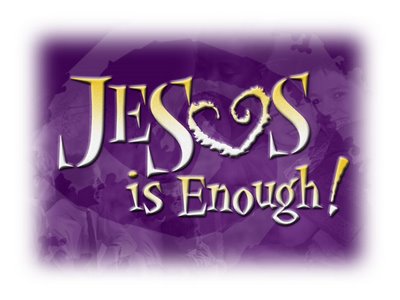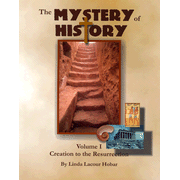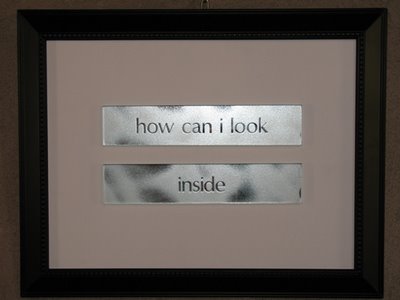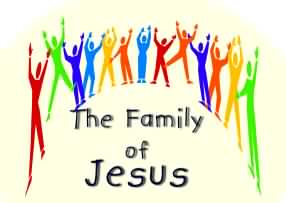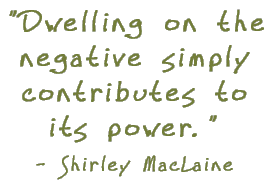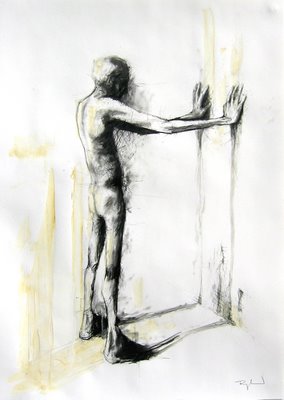
Week 7 of “
Life Is Too Short To Be Wasted Being Mad, Angry & Emotionally Wrecked”
The good times and the bad times are not always what they first appear to be.
One day, a young man’s horse ran away for no apparent reason and was subsequently taken by nomads across the border. Everyone tried to offer condolences to the young man for his bad fortune, but his father, a wise man, said, “What makes you so confident that this is not a blessing?”
Months later, his horse returned, bringing with her a magnificent stallion. This time everyone was full of congratulations for the son’s good fortune. But now the father said, “What makes you so confident that this isn’t a disaster?”
In fact, their household became richer because of this fine horse, which the son loved to ride. But one day he fell off the horse and broke his hip. Once again, everyone offered
condolences for his bad luck, but his father said, “What makes you so confident that this is not a blessing?”
A year later neighboring nomads mounted an invasion across the border, and every able-bodied man in the village was required to take up his bow and go into battle. They lost 9 out of every 10 men. Only because the son was lame did the father and son survive to take care of each other.
There are times of our life that only gain perspective in hindsight. One of the most powerful of all of them is called ‘the dark night of the soul”, or as others have called it, “
The Wall”. Every Christ follower will one day come face to face with the pain of the wall.
We may arrive at the wall because we decide to go back into our past, to the depths of our pains in order that we may finally move forward. Others of us arrive at the wall because of our own self-destructive behaviors. Still others show up on its doorstep because of circumstances beyond our control, like the death of a loved one.
If we fail to come to grips with the nature of the wall, we will endure greater long-term pain and confusion. As strange as it sounds, if we can receive the wall as gift can transform our life forever.
Life is like a journey. There is movement and travel, stops and starts, detours and delays, ventures into the unknown. We see this again and again in the Bible. God called Abraham to leave his past life and to embark on a new journey to a new land, to become the father of a new people. Think of the journey that he and Sarah experienced when they had a baby at a ripe old age!
Think of Moses. Was his life a journey or what? After the adventure of his early life he begin a new venture at 80 in front of a burning bush! And then he endured a forty-year personal transformational jaunt in the desert! That’s wall stuff.
David was called by God to leave the comforts of the pastures in order to kill a giant. And then to become the king of Israel. And oh the stories along the way: seduction, murder, rape, conspiracy, flight, it sounds like soap opera.
Jeremiah was called to 40 or 50 years of difficult work on behalf of God, staying true in a rebellious and destructive time. We looked a little at his journey a few weeks back.
Jesus invited 12 men to follow him into a way of life that ultimately ended their lives. Judas become disillusioned along the way and betrayed Jesus. Betrayal often brings us face to face with the wall.
Many get stuck at the wall like a Judas and turn on God. They run and hide, or they stay hopelessly stuck. Some even become caged; failing to see the bigger picture of the transforming work that God seeks to do at their wall. The disorientation and pain of their present circumstances blind them. And one of the things that hurts deepest is the sense of failure in not being able to find other companions on the journey, especially those who are going or have gone through the wall.
We do seem to go through different stages in our faith development. There are several distinct seasons.
Stage 1: (spring)
Life-changing Awareness of God. This begins our spiritual journey with Christ, either as a child or as an adult. We realize our need for mercy and begin our relationship with God.
Stage 2:
Discipleship (summer). This season is characterized by learning about God and what it means to be a follower of Christ. We get rooted in a community of faith, a church.
Stage 3:
The Active Life (serving- kind of fall with the harvest). We get busy with the doing, taking responsibility for our unique talents and gifts to serve others.
Stage 4
The Wall and The Journey Inward. This is winter. This is the
dark night of the soul. Sometimes the wall precipitates our going inward, and for others the look into our past brings us face to face with the wall. God brings us to the wall.
Stage 5- (spring, again)
The Journey Outward. We move forward to ‘do’ for God again. The difference is that this time we give out of a new, grounded center of ourselves in Christ. We have rediscovered God’s profound, deep, accepting love and grace for us. We grow into that truth in profound ways. We begin to develop a deep inner stillness that centers on God
Stage 6 (again like late summer and harvest.)
Transformed By Love. Wwe continually see events, circumstances, people, and even books as helping us be sent further along on our journey. We surrender ourselves wholeheartedly to whoever and whatever comes along our path. We see every day, every interaction as an opportunity to be a conduit of God’s grace.
Seasons happen to us regardless of whether we’re ready or not. The wall is similar. It could start through a job loss, a divorce, a cancer diagnosis, death of a close friend or family member, betrayal, a shattered dream, a car accident, a wayward child, a painful church experience, a deep desire to marry that remains unfulfilled, a dryness or loss of joy with God. As we arrive at the wall we sense that our faith no longer ‘works’.
Unintentionally and unknowingly we fall back into imperfections. Bad habits are like living roots that return. These roots must be dug away and cleared from the garden of our soul. This requires the direct intervention of God. Thomas Merton
When we make it through the wall, we no longer have a need to be well known or successful, but to do God’s will. We have learned what Paul said,
Philippians 4:12I know what it is to be in need, and I know what it is to have plenty. I have learned the secret of being content in any and every situation, whether well fed or hungry, whether living in plenty or in want.
It’s easy to get stuck at the wall. We hide behind platitudes, fearful of the pain, of being known for who we are, and unable to trust that God will transform us through it. We sing happy songs, put on church happy face and try to keep it together for the weaker members of the body and to show to the watching world that we’re strong and victorious.
If we really believe that “
Life Is Too Short To Be Wasted Being Mad, Angry & Emotionally Wrecked” we will admit,
I am bewildered.
I don’t know what God is doing right now.
I am hurt.
I am angry.
Yes, this is a mystery and I am very sad right now.
O God why have you given up on me?
Years ago St. John of the Cross articulated 3 phases in the dark night of the soul, the wall. There was the beginner phase, the progressive phase and the perfect. To move out of the beginner place requires that we receive the gift of the wall.
Some gift, hey?
How do you know you’re at the wall? Your good feelings about God evaporate. It seems like to door of heaven is shut to our prayers. We seem helpless, a failure, empty. We leave behind an emotional wake of pain and destruction.
John of the Cross wrote that God sends us “
the dark night of loving fire” to free us. He wrote of the seven deadly sins of spiritual imperfection that need to be purified:
1.
Pride: having a tendency to condemn others and become impatient with their faults. Are you selective in who can teach you?
2.
Greed: never content with what they have materially or spiritually.
3.
Luxury: taking more pleasure in spiritual blessings than God himself. Blessings are a second order experience of God. God’s presence Himself is of the first order.
4.
Wrath: easily irritated, lacking sweetness, and having little patience to wait on God.
5.
Spiritual gluttony: resisting the cross and choosing pleasures like children.
6.
Spiritual envy: feeling unhappy when others do well spiritually. Always comparing.
7.
Sloth: running from that which is hard.
When I left my previous church, there was some heartache. Coinciding with that I underwent a detached retina and then we experienced two floods. These experiences built on some earlier work that God had been doing, but I would say that on this side of things, they are different. I feel freer from opinions of others than before, more clear about who I am and the way I was made, and way more certain of God’s love than ever.
There will be other dark nights. But I’m growing in my sense of not fearing them.
As Tarzan’s first law of the jungle states, “
You have to let go of the vine you’re on to grab the one that’s swinging your way.”
A corollary of that is
being willing to grab the swinging vine knowing that it might break and you’ll fall; but being thankful ahead of time that the crash from the fall may be what you needed to find healing.
An adventure is only an inconvenience rightly considered. An inconvenience is only an adventure wrongly considered. G. K. Chesterton
Our water situation today. An inconvenience or an adventure in teamwork?
My dear God, I have no idea where I’m going. I can’t see the road ahead of me. I cannot know for certain where it will end. Thomas Merton
How long is the wall? David spent 13 years in the desert fleeing a jealous king! Abraham waited 25 years for the birth of his first child, Isaac. Job lost ten children, his health and his possessions in an instant. Moses wandered 40 years in the desert.
What’s it look like on the other side?
A greater level of brokenness. People on the other side are freed from judging others. “I can’t believe she calls herself a Christian. Mega church people are superficial. Their church is small and dead.”
If you want to measure this, ask yourself how offendable am I? A broken person when insulted says ‘it’s way worse than you thought!”
Lord Jesus have mercy on me, a sinner. Luke 18:9-14
A deeper ability to wait on God. We receive a greater capacity to wait on God. Going through the wall breaks something deep within us- the driving, grasping, fearful self will that must produce, that must make something happen, that must get it done for God (just in case God can’t get it done himself.)
Possibly the greatest sins and errors for myself over the years go back to a failure to wait on God. Especially pertinent that I have a lifelong battle with patience and am an activator!
Psalm 27:14Wait for the LORD; be strong and take heart and wait for the LORD.
Stay with God! Take heart. Don't quit. I’ll say it again: Stay with God.
Psalm 130:5-6I pray to God—my life a prayer— and wait for what he'll say and do. My life's on the line before God, my Lord, waiting and watching till morning, waiting and watching till morning.
Abraham took matters into his own hands, having a child with his maid Hagar, because 11 years had transpired since God told him he’d have a son. He waited another 14 for Isaac.
Moses spent 40 years in the desert, but prepared himself, Joshua and the people during that time. What did that do to his character?
Numbers 12:3Now the man Moses was a quietly humble man, more so than anyone living on Earth.
Do you want character like that? Be careful what you ask for.
Hannah endured years of infertility, unanswered prayers, mocking from the second wife of her husband before God answered her prayers. She became the Godly mother of Samuel, and he transformed a nation.
A greater detachment.1 Corinthians 7:29-31
I do want to point out, friends, that time is of the essence. There is no time to waste, so don't complicate your lives unnecessarily. Keep it simple —in marriage, grief, joy, whatever. Even in ordinary things—your daily routines of shopping, and so on. Deal as sparingly as possible with the things the world thrusts on you. This world as you see it is on its way out.
What I mean, brothers, is that the time is short. From now on those who have wives should live as if they had none; those who mourn, as if they did not; those who are happy, as if they were not; those who buy something, as if it were not theirs to keep; those who use the things of the world, as if not engrossed in them. For this world in its present form is passing away.
A greater sense of mystery.
An old Rabbi crossed the village square every morning on his way to the temple to pray.
One morning, a large Russian soldier, in a vile mood, accosted him, saying, “Hey, Rabbi, where are you going?”
The old Rabbi simply said, “I don’t know.”
This comment infuriated the soldier. “What do you mean, you don’t know? Every morning for years you cross the village square and go to the temple to pray. Don’t mess with me. Why are you telling me you don’t know?”
With that he grabbed the Rabbi by the coat and dragged him off to jail. Just as he was about to push him into the cell, the rabbi turned to him, and softly said, “You see, I didn’t know.”
I wonder if there are 20 men alive in the world now who see things as they really are. That would mean that there were 20 men who were free, who were not dominated or even influenced by an attachment to any created thing or to their own selves or to any gift of God. Thomas Merton
Only You by
David CrowderTake my heart, I Lay it down
At the feet of you whose crowned
Take my life, I’m letting goI lift it up
to You who’s throned
And I will worship You, Lord
Only You, Lord
And I will bow down before You
Only You Lord
Take my fret, take my fear
All I have, I’m leaving here
Be all my hopes, be all my dreams
Be all my delights, be my everything
And It’s just you and me here now
Only you and me here now
You should see the view
When it’s only you
Only You
 Job 14:18-22
Job 14:18-22 
